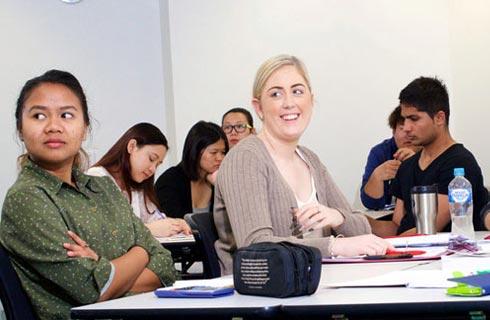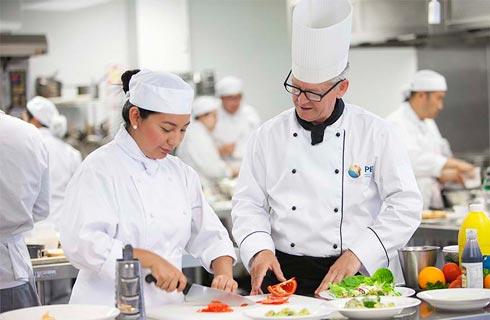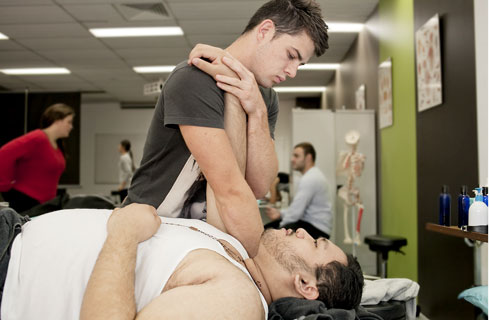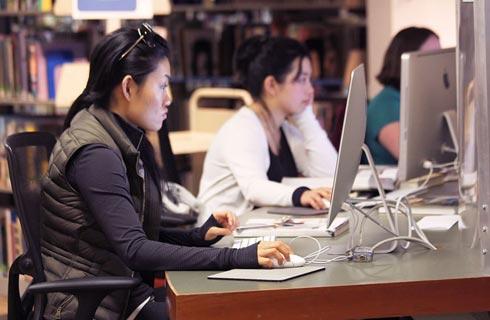传播学学士(新闻学)
Bachelor of Communication (Journalism)

学历文凭
Bachelor Degree

专业院系
Faculty of Arts and Social Sciences

开学时间

课程时长

课程学费

国际学生入学条件
Applicants must have completed an Australian Year 12 qualification, Australian Qualifications Framework Diploma, or equivalent Australian or overseas qualification at the required level.
IDP—雅思考试联合主办方

雅思考试总分
- 雅思总分:
- 托福网考总分:
- 托福笔试总分:
- 其他语言考试:
CRICOS代码: 087733K
申请截止日期: 请与IDP联系 以获取详细信息。
课程简介
Kick-start a meaningful career where you’ll investigate global issues, uncover the facts and communicate them to the public.If you have a passion for storytelling across multiple media and want to shape the world through the power of truth, a career in journalism is for you. With UTS' Bachelor of Communication (Journalism), you'll get the, insight and knowledge you need to launch an exciting future in news. At UTS, we go beyond the essential skills of writing, research and investigation to foster critical thought, media ethics and intellectual rigour, underpinned by the principle that journalism is a public good. This means you'll graduate fully equipped to take on the biggest stories from the local to the international stage, all while upholding the highest standards of this longstanding and ever-changing profession. Journalism is offered as a major in the Bachelor of Communication. In this degree, you'll complete core Communication subjects covering topics like citizenship, digital literacy and communicating difference, building a comprehensive overview of this fascinating and wide-ranging discipline.
相关申请
 预科
预科 奖学金
奖学金 实习机会
实习机会 在校学习
在校学习 跨境学习
跨境学习 校园授课-线上开始
校园授课-线上开始 在线/远程学习
在线/远程学习
开学时间&学费
学费信息仅供参考,请与IDP联系以获取详细信息
| 开学时间 | 时长 | 学费 | 地点 |
|---|
学校排名

世界排名196
数据源:
泰晤士高等教育世界大学排名
关于悉尼科技大学

悉尼科技大学(UTS)是世界排名前100的大学之一(QS 2025),对于任何希望提升职业前景并在充满活力的环境中学习的学生来说,这都是一个很好的选择。UTS的学位包括实地考察、案例研究和其他实践经验。学科与行业相结合,为学生提供相关技能。研究项目将学生与所在领域的顶尖人才联系起来。作为一所高级研究型大学,学生可以向在各自行业提供丰富经验的专家学习。该大学提供相应的设施,其空间旨在模拟所有学院学生的真实工作环境。UTS位于悉尼市中心,悉尼是世界第六大学生城市(QS 2025)。在这里,学生们可以轻松地在学习、工作和休闲之间切换。UTS就在中央车站旁边,所以学生们可以跳上火车或公共汽车在城市里四处逛逛,享受悉尼提供的一切。UTS提供: 国际学生支持中心 英语语言与学习支持服务 职业服务 医疗和心理健康支持 住宿支持 180多个学生俱乐部
本校相关课程

全球研究学士
学历文凭
Bachelor Degree
开学日期
课程费用总额


信息技术科学学士学位
学历文凭
Dual Degree
开学日期
课程费用总额


网络工作研究生证书
学历文凭
Graduate Certificate
开学日期
课程费用总额


音乐与声音设计学士国际研究文学士
学历文凭
Dual Degree
开学日期
课程费用总额


音乐和声音设计学士学位
学历文凭
Bachelor Degree
开学日期
课程费用总额


室内建筑设计学士学位
学历文凭
Bachelor Degree
开学日期
课程费用总额

其他相关课程

传播学学士(新闻学)
 悉尼科技大学
悉尼科技大学学历文凭
Bachelor Degree
开学日期
课程费用总额


数字媒体与传播学士学位
 威斯敏斯特大学
威斯敏斯特大学学历文凭
Bachelor Degree with Honours
开学日期
课程费用总额


MA Digital Media and Society
 卡迪夫大学
卡迪夫大学泰晤士高等教育世界大学排名:204
学历文凭
Masters Degree (Taught)
开学日期
课程费用总额


电影,电视和广播文学(荣誉)文学士学位(基础入学)
 中央兰开夏大学
中央兰开夏大学学历文凭
Bachelor Degree with Honours
开学日期
课程费用总额


新闻,媒体和英语文学(荣誉)文学士学位
 卡迪夫大学
卡迪夫大学泰晤士高等教育世界大学排名:204
学历文凭
Bachelor Degree with Honours
开学日期
课程费用总额


新闻学学士-国际研究学士
 伍伦贡大学
伍伦贡大学泰晤士高等教育世界大学排名:247
学历文凭
Dual Degree
开学日期
课程费用总额










